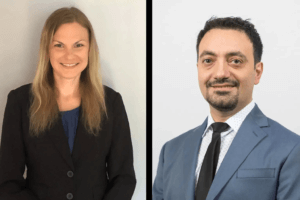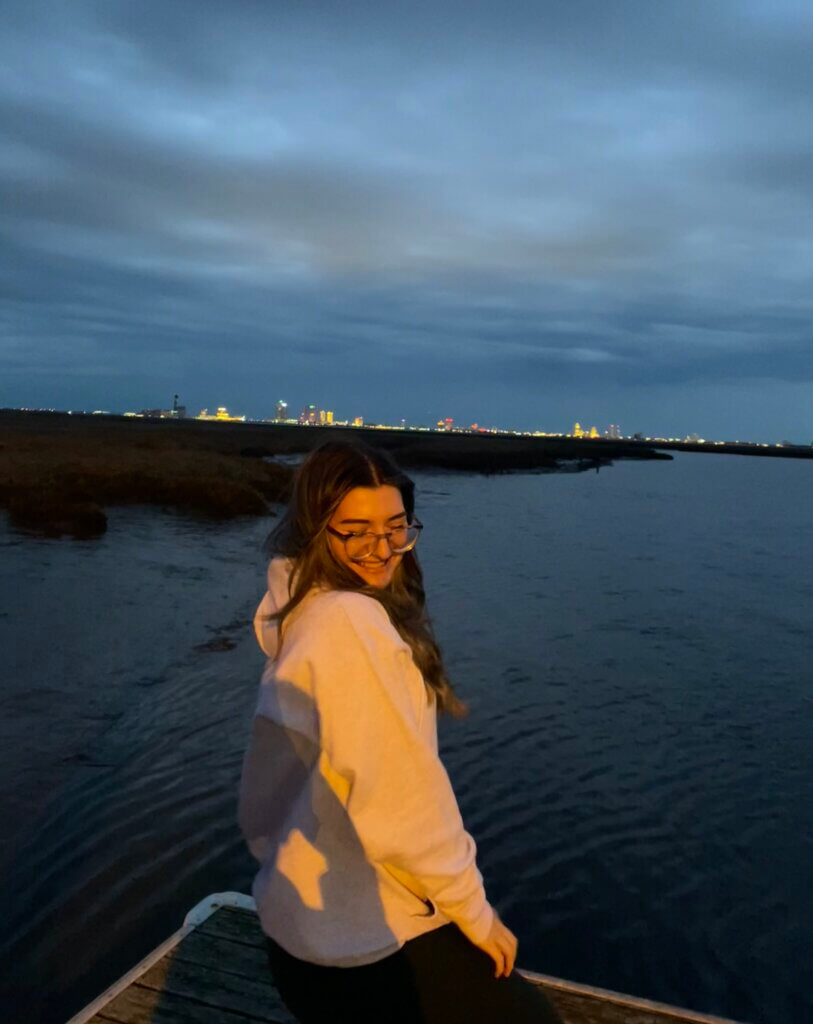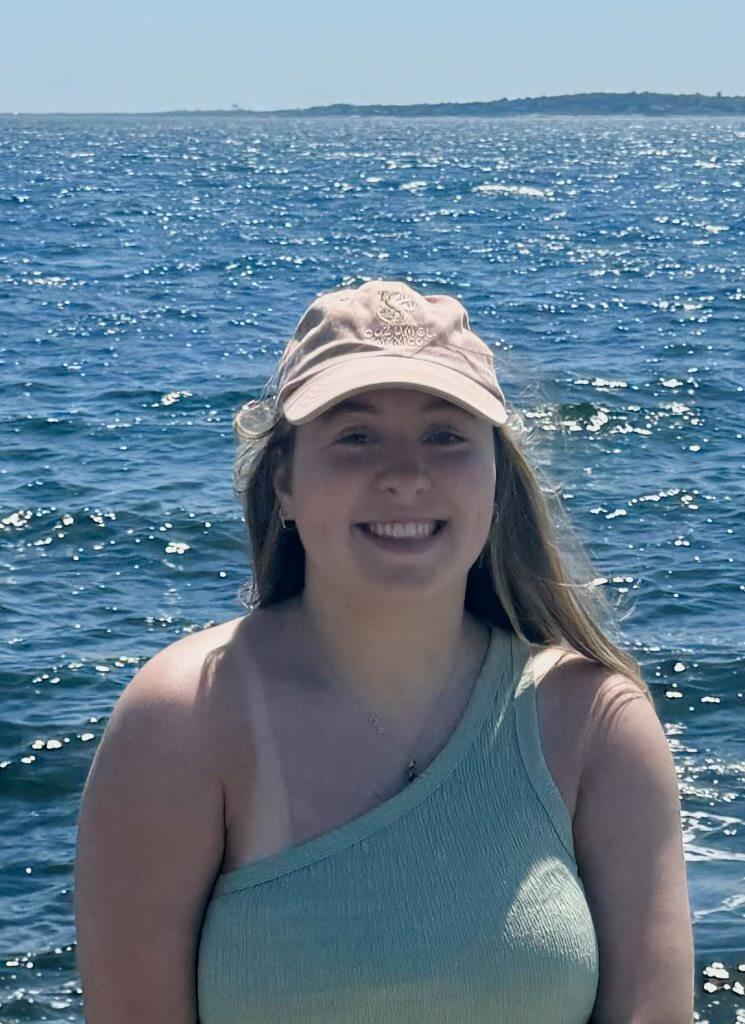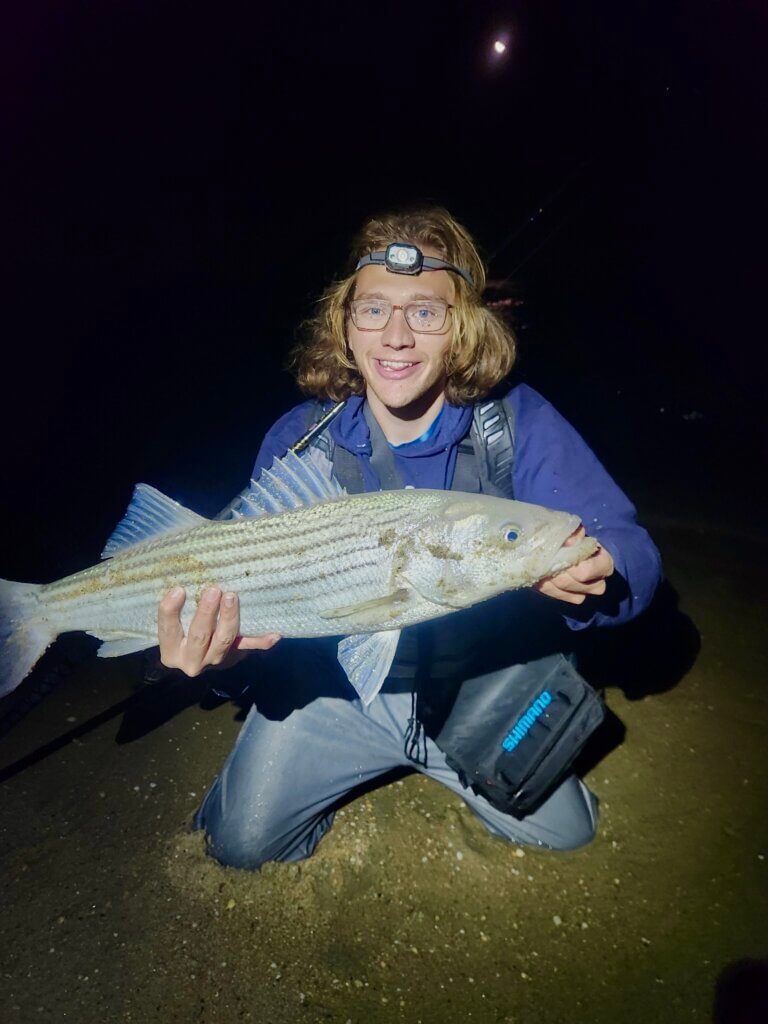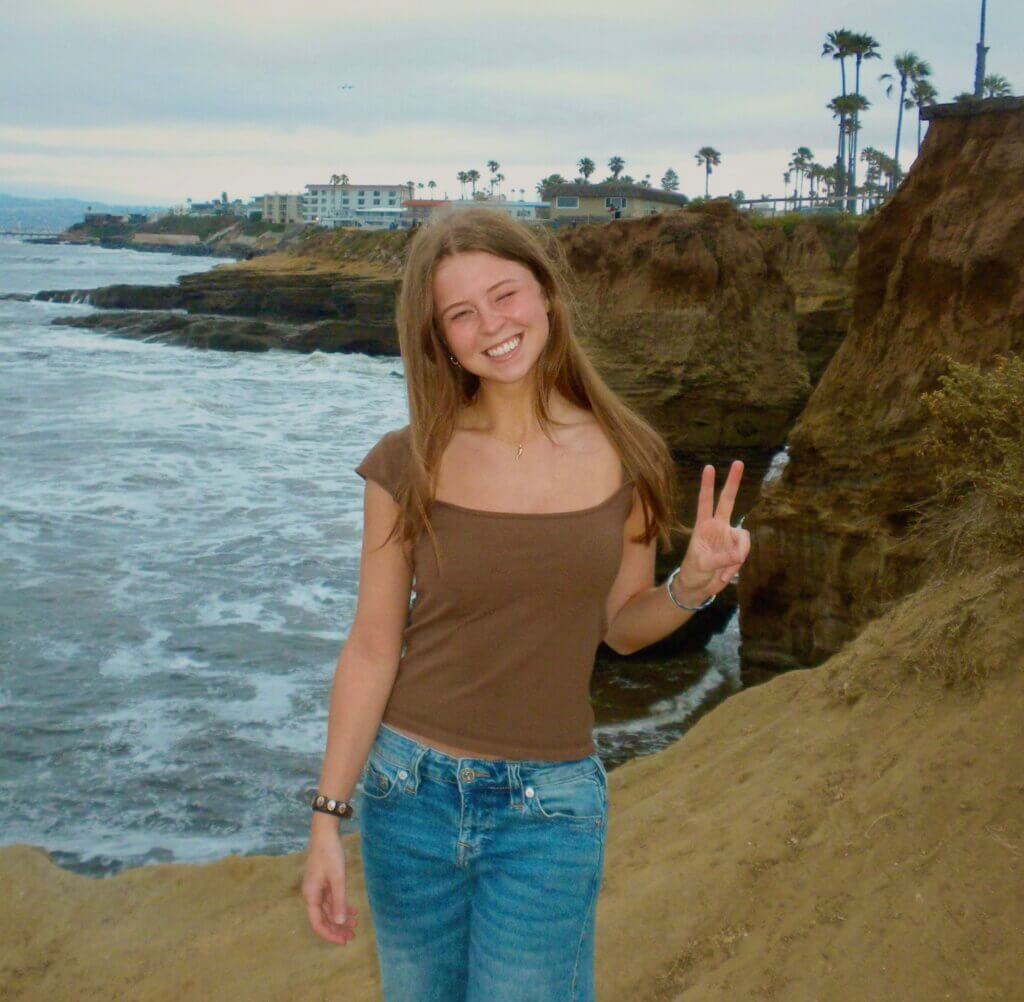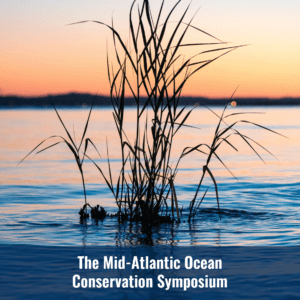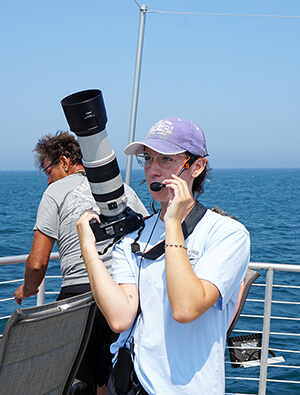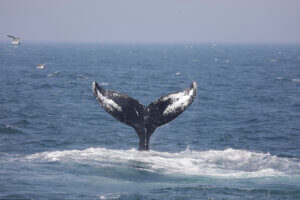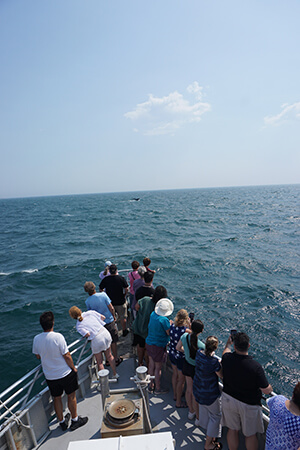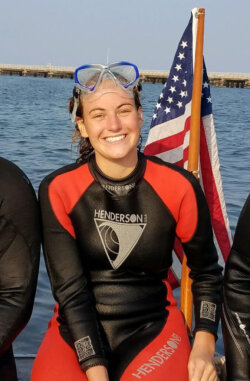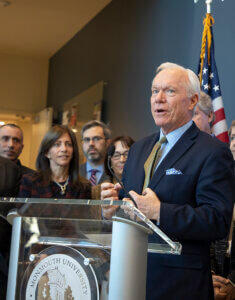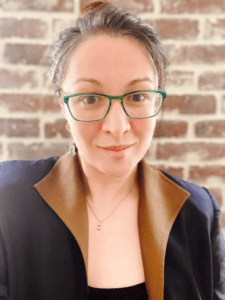
The Urban Coast Institute (UCI) has awarded Monmouth University Associate Professor Veronica Davidov a Faculty Enrichment Grant to continue her ongoing research on biomimicry, the practice of emulating processes and forms in nature to address human challenges.
Biomimicry has long been employed by engineers for purposes ranging from aeronautics innovations inspired by birds to offshore wind turbine blades modeled after humpback whale fins. Davidov, of the Department of History and Anthropology, has for several years explored biomimicry in a cultural context, and how it is increasingly being looked to as a natural resource and a pathway to sustainability.
The next phase of Davidov’s research will focus on the role water and water-based chemistry play in biomimicry. The grant will assist Davidov with conducting structured interviews with experts, software needs, involving student researchers, and attending an immersive workshop organized by the Biomimicry Institute in 2025.
The UCI offers Faculty Enrichment Grants on a competitive basis to Monmouth University faculty to support individual or collaborative projects for the enhancement of existing curriculum, new curriculum development, research and scholarship and team-teaching opportunities. Funding is available through the Heidi Lynn Sculthorpe Scholars program for faculty and student researchers of all disciplines whose work furthers the mission and goals of the UCI to serve as a forum for research, education and collaboration to further healthy and productive coastal ecosystems and resilient and economically vibrant coastal communities.
For more information on available grants, contact UCI Associate Director Tom Herrington at therring@monmouth.edu or visit the UCI’s funding opportunities page on the MyMU Portal (Monmouth login credentials required).

